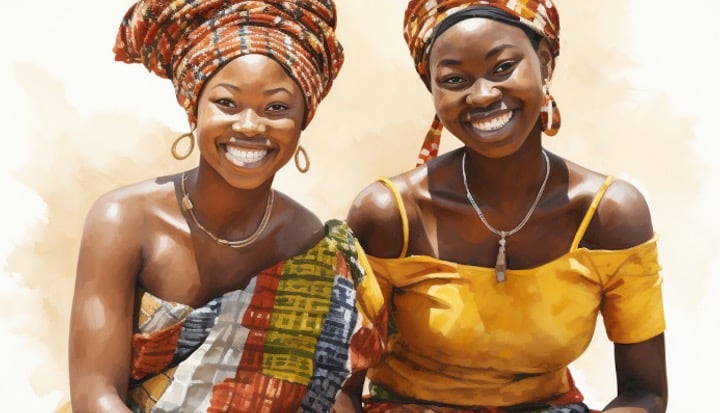 Shea butter, a natural fat from Shea nuts, comes from Shea trees, indigenous to sub-Saharan Africa. Shea trees take 15 years to produce their first nuts. Shea butter is the only natural fat that contains all the nutrients the skin needs and its production is a centuries-old craft practiced by local women for cooking and skincare. Demand for Shea is growing sharply, with volumes set to double by 2050.
Shea butter, a natural fat from Shea nuts, comes from Shea trees, indigenous to sub-Saharan Africa. Shea trees take 15 years to produce their first nuts. Shea butter is the only natural fat that contains all the nutrients the skin needs and its production is a centuries-old craft practiced by local women for cooking and skincare. Demand for Shea is growing sharply, with volumes set to double by 2050.
However, this growth is primarily for unprocessed Shea nuts, not Sheabutter, to extract oil used by the plant-based food industry. While Africa exports more Shea nuts, traditional Shea processing communities suffer as processing is mechanised in urban centres and abroad. Women, once empowered artisan Sheabutter producers, are now exploited as Shea nut collectors: work with minimal social standing and earnings that don’t come close to the UN poverty rate.
Dipaliya Women Take Back Control
Dipaliya Women’s Association (DWA), a registered women’s’ co-operative in Northern Ghana, has chosen a different path to sustain their position. Supported by community leaders and Dipaliya Foundation volunteers in the Netherlands, they have developed the “Return on Extraction” (RoE) model for sustainable Shea trading.
Deployed since 2018, RoE relies on communities determining their own priorities and motivations without outside agendas. DWA’s goals are: 1) Make quality, organic Shea butter using traditional skills 2) Pay fair wages that value those skills 3) Generate revenue to expand organic community farming.
With a reputation for quality and reliability, DWA built a Shea butter processing center in 2019, the largest and best equipped in Ghana. But when COVID-19 hit months after the first shipment, retail sales slowed despite new partnerships with small brands.
Today, an organisational structure is in place that aligns with DWA’s objectives:
- DWA owns the processing center.
- Dipaliya Foundation arranges logistics, sales, and payments, mandated to reinvest over 90% of surplus in the Community Investment Fund.
- The Community Investment Fund, run by local leaders, receives the surplus to reinvest in organic farming.
Despite this progress, current B2B revenues cannot fund the next production batch. Most traders buy the cheapest Shea, and pioneer brands buying directly are still rare. But consumers want sustainable products from transparent supply chains.
So DWA is launching its Dipaliya Raw consumer brand, a B2C social entrepreneurship venture allowing shoppers to buy exceptional, healing Shea butter directly from Ghanaian women. QR codes on jars show the specific woman that produced it and her story.
This unlocks the supply chain, directly linking the consumer purchase to rural Africa and giving African women a voice. Dipaliya demonstrates how ethical trading and conscious purchases can be aligned in a win-win-win situation benefiting people, planet, and climate.
While the RoE model is proven, DWA is not yet self-sufficient. Women still depend on community support and Dipaliya Foundation volunteers. Autonomy will take years, but African communities are patient and measure progress over generations. Dipaliya means “dreams of the heart come true” in the Dagomba tribe language.
You can support Dipaliya by pre-purchasing Dipaliya Raw Shea Butter or Join the Investors Call.support Dipaliya or .
The lending certificates are 5.000,00 Euro each (6% interest), with two certificates at 8% interest or half a certificate at 4%. Saakuba community in Ghana has offered to host a lucky Direct Investor to experiencing living with them (To be selected in a blind lottery – travel expenses not included).
Learn more about Dipaliya’s mission
Support Dipaliya by or .










